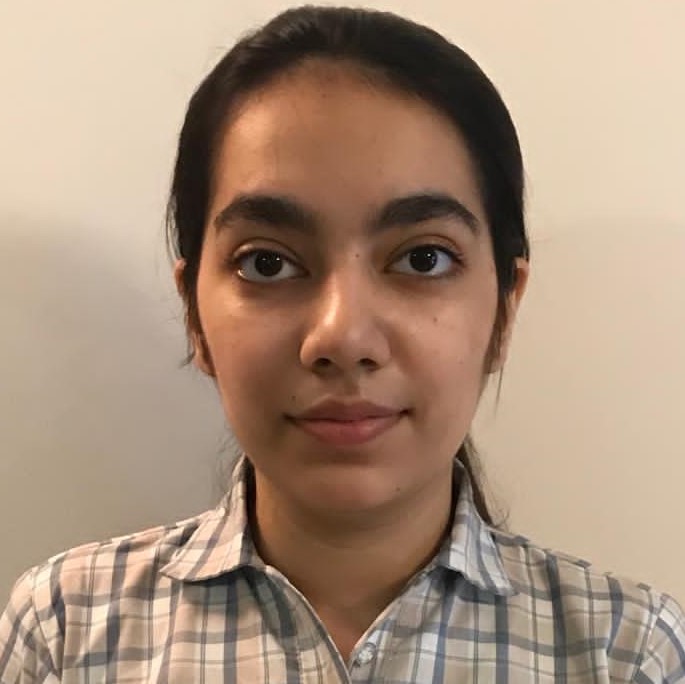
Strengthening Peace, Justice and SDGs through Education: Grassroot Perspectives and Innovative Practices from India
Date |
Wednesday, 2 December 2020 |
Host |
|
Time (CET)
|
16:00 - 17:30 |
Language |
English |
The dialogue was an open conversation between educators, youth and policymakers from India on:
- How educators and policymakers envisage teaching on SDGs, peace and the rule of law (especially in the context of COVID-19), in the context of India's New Education Policy 2020
- Good practices/innovations in mainstreaming education on peace, justice and SDGs in the classroom
- Bridging Gender, Socio-Economic and Digital Divides: How engaging with UNODC through E4J and Lockdown Learners has helped students and educators
- Building Back Better from COVID-19: Opportunities to institutionalize education for justice, peace and SDGs
- Showcasing Youth Actions: Using music and network building to strengthen peace and justice
Panellists
Moderator
Samarth Pathak
Communications Officer and E4J Focal Point for South Asia, UNODC Regional Office for South Asia
Based in New Delhi, Mr. Pathak is a public advocacy specialist with a keen interest in human rights, SDGs and regional security. Pathak is currently associated with the United Nations Office on Drugs and Crime (UNODC), where he coordinates communications and public advocacy for South Asia, as well as youth-focused initiatives to promote peace and the rule of law as part of the Education for Justice (E4J) global program. During COVID-19, he spearheaded “The Lockdown Learners”, a new initiative to strengthen youth engagement and action on peace, the rule of law and SDGs through dialogues and activity-based learning. This also aims at empowering students and educators with limited internet access through Whatsapp, audio-recordings and interactive dialogues. Prior to UNODC, Pathak worked as journalist with Reuters TV and subsequently moved to the policy advocacy space with strategic roles in international think tanks. His experience encompasses policy analysis and advocacy, Track II Diplomacy, strategic communications, and news reporting and production. Pathak has been a regular writer for The Huffington Post, and his reports and op-eds have previously appeared in Medium, The Guardian, Reuters Alertnet, The Dawn, Hardnews and The Asian Age.
www.unodc.org/southasia | @Pathak_Samarth | Lockdown Learners India
Speakers
Amarendra Behera
Director (CIET), NCERT, Government of India
Dr. Behera is the Joint Director, CIET at the National Council of Educational Research and Training (NCERT), an Autonomous Body set up by Ministry of Human Resource Development, Govt. of India. His major contributions include development of audio-video programmes, management of school broadcasts-UMANG through All India Radio stations, development of media materials (about 200 radio and TV programmes), design and organisation of Courses and Training in different aspects of Educational Technology (ET)-especially in Script writing, Production techniques, Instructional design for multimedia programmes, Research Methodology for ICTs in Education, Use of ICTs in Education and development of ICT curriculum for schools. He is also coordinating the development of National Repository of Open Educational Resources (NROER), launching of Online Courses under MOOCs on SWAYAM and telecast of Educational TV programmes on 24×7 DTH Channel SWAYAM PRABHA etc. He is actively involved in planning, designing and executing methods and techniques in the appropriate use of ICTs for enhancement of teaching learning, cost-effective uses of ICTs for cooperative and collaborative learning situations, and Free and Open Source software. He has created about 75 learning communities (e-groups, blogs) and continuously networking with teachers and teacher educators on use of new technology and pedagogy. He is also using mobile technology for dissemination of educational messages and resources.
https://ncert.nic.in/ | @ap_behera
A Ramachandra
Coordinator (Alumni Affairs and Outreach), Navodaya Vidyalaya Samiti, Government of India
Mr. Ramachandra serves as Coordinator (Alumni Affairs and Outreach)—having previously served as Joint Commissioner (Academics)—at the Navodaya Vidyalaya Samiti, Ministry of Education, Government of India. He has worked in the area of School Education and teacher training extensively over 38 years. He also completed Educational Leadership programme from CEMD and Management Development Programmes from IIM Ahmedabad, Lucknow and Kolkata. He has also worked as Registrar, International Institute of Information Technology Bangalore, Head of Administration and Finance and Deputy Registrar at Indian Institute of Technology Ropar. His Important assignments also include Heading large set up of schools in various regions, leading ICT in Education, School Curriculum development and Textbook writing committee of NCERT for ICT in Schools, National Committees for School Bag, Reading, Sports, School Based Assessment etc. He has also worked for long in the areas Competency Based Learning, Training and development in school system and Art in Education in Schools. He has been a visiting trainer for Administrative matters in a few Institutes. He received recognitions for ICT implementation and quality improvement in school education and school administration. He has been an invited speaker on quality improvement in school education. He was also instrumental in creating popular platform for performing arts and fine arts in schools. He is associated with Voluntary initiatives in youth development and training in India.
www.navodaya.gov.in | @jcacadnvs
Shweta Sharma
Educator, Vivekananda Public School (Deoghar, Jharkhand), India
Ms. Sharma is an award-winning teacher from the Vivekanand Middle School in Deoghar, Jharkhand. From being a science teacher to an English language teacher, she has experimented in educational innovations with a mix of pedagogy and ICTs. Her focus is on improving learning outcomes among students from all strata and backgrounds. In this quest, she has successfully engaged students through curricular and co-curricular activities, creation of hobby clubs and an active 'Bal Sansad'. During COVID-19, she has reached out to economically disadvantaged students with limited internet access through Whatsapp. Her areas of focus are using audio- video e-content to reduce dependency on paid internet, girl child empowerment, quality education, ICT-based teaching and national integration.
@sharmashwetz
Himmat Dhillon
Headmaster, The Lawrence School Sanawar (Himachal Pradesh), India
Mr. Himmat Dhillon serves as the Headmaster of The Lawrence School, Sanawar, one of India’s most acclaimed schools. Mr. Dhillon has an illustrious career as an educationist and administrator. He worked at The Doon School, Dehradun as Teacher (English Faculty), Head of Department and Housemaster. He has been the Principal at Gandhi School, Jakarta and Our Own English High School, Fujairah. He has more than two and a half decades of valuable educational and general administration related experience as Master, Resident Tutor, Housemaster, Head of Department as well as Principal/CEO at educational institutions in India and abroad.
http://www.sanawar.edu.in/ | @HimmatDhillon1
Asavri Verma
Student and Musician, Ahlcon International School (New Delhi), India
Ms. Asavri Verma is an inquisitive and driven young high school student who strives to inspire people with her music, co-composed with her sister Ananya. During COVID-19, she has actively collaborated with UNODC to release a series of songs highlighting social issues and the SDGs. She has represented youth at various global panel discussions and seminars, such as Creators 2030, and has been involved in a UN Youth Project as a leader. She operates her collaborative YouTube channel, ‘Beyond Beatless’ as a musician and an influencer.
@asavri_13
Medha Tushti
Student, Deoghar, Jharkhand, India
Ms. Medha Tushti is a young high school student from Deoghar town of India’s Jharkhand state. She has been actively associated with UNODC’s ‘Lockdown Learners’ series during COVID-19, and has been instrumental in setting up youth networks on Whatsapp. She works actively with students from economically disadvantaged backgrounds in Deoghar town, aiming at bridging digital divides. With guidance from UNODC and her educators, she has created a network of students to promote education, peace and SDGs. She also coordinates a ‘Notebooks Exchange’ programme among students with limited digital means.
 Back to Day 2
Back to Day 2
 To top
To top








